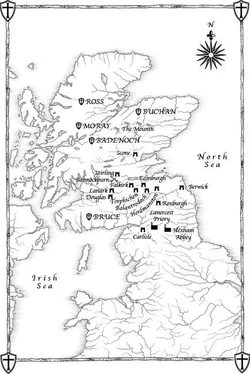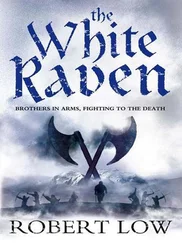Robert Low - The Lion Rampant
Здесь есть возможность читать онлайн «Robert Low - The Lion Rampant» — ознакомительный отрывок электронной книги совершенно бесплатно, а после прочтения отрывка купить полную версию. В некоторых случаях можно слушать аудио, скачать через торрент в формате fb2 и присутствует краткое содержание. Год выпуска: 2013, Издательство: HarperCollins Publishers, Жанр: Исторические приключения, на английском языке. Описание произведения, (предисловие) а так же отзывы посетителей доступны на портале библиотеки ЛибКат.
- Название:The Lion Rampant
- Автор:
- Издательство:HarperCollins Publishers
- Жанр:
- Год:2013
- ISBN:нет данных
- Рейтинг книги:4 / 5. Голосов: 1
-
Избранное:Добавить в избранное
- Отзывы:
-
Ваша оценка:
- 80
- 1
- 2
- 3
- 4
- 5
The Lion Rampant: краткое содержание, описание и аннотация
Предлагаем к чтению аннотацию, описание, краткое содержание или предисловие (зависит от того, что написал сам автор книги «The Lion Rampant»). Если вы не нашли необходимую информацию о книге — напишите в комментариях, мы постараемся отыскать её.
The Lion Rampant — читать онлайн ознакомительный отрывок
Ниже представлен текст книги, разбитый по страницам. Система сохранения места последней прочитанной страницы, позволяет с удобством читать онлайн бесплатно книгу «The Lion Rampant», без необходимости каждый раз заново искать на чём Вы остановились. Поставьте закладку, и сможете в любой момент перейти на страницу, на которой закончили чтение.
Интервал:
Закладка:
Beginning with that weeping little scut in the iron hat …
Dog Boy saw the knight ride at him. It was the same one who had killed Patrick, a red figure with little silver goblets on his jupon, shieldless but with his sword drawn back ready to sweep down. Dog Boy was blinded by snot and tears and could not be sure if it was for Patrick, or all the others, or simply rage.
Or for himself, who was surely about to die. He flung the axe, almost wearily, in a last futile gesture.
D’Argentan saw it coming and raised his shield to block it. The shield I do not have, he remembered at the last. The axe whirled over his forearm and struck him on the chest, bouncing off. He had time to bless the padding and maille before he lost his balance, like a tyro, and fell with a clatter as the warhorse crow-hopped delicately over the dead.
There was a moment of disbelief, of sheer incredulity. Third-best knight in Christendom. It came to him then how that had been when he was younger, for a rank beginner would not have fallen so easily. Then d’Argentan realized he was flat on his back, half-draped over a dead horse, and began to struggle upright.
The figure landed on him with both feet, driving all the air out of him, so that he whooped and gasped and knew, with all the experience of his tourney years, that something had snapped in his chest.
‘Bastard,’ the man snarled and d’Argentan, struggling weakly, felt the visor wrenched up, stared into the black-bearded hate of the Scot; slaver dripped on his cheek.
He had time to feel unutterably weary, to wonder if God would forgive him his many sins.
Then Dog Boy drove the dagger into his eye and roared out revenge for Patrick.
‘On them,’ he bawled out, looking right and left. ‘They fail.’
ISABEL
I woke striped with light. I do not often sleep in the cage, save when the heat is oppressive as now; it does not happen often in Scotland. It annoys the gawpers, who come to see a scowl of witch, not a wee auld wummin snoring. Constance stirred me, then begged me to come into the chamber to eat the meal she had brought and was so flustered and secretive that I did, wondering. She presented her daring gift — mother’s milk. Brought from a wet nurse whose wee charge died, she told me, greatly daring. I did not want it, especially from a wet nurse whose charge had died — who was to say it was not the milk?I did not say this, for I knew why Constance had brought it. She would say it was because it was the perfect food for the old and invalid and begging my pardon as she did so, for insinuations — but it was all because of Sister Petra of Cologne, whose story had just reached Constance’s ears. That nun, so the story went, had eaten nothing else, nor moved much. She closeted herself in a tower and drank the mother’s milk through a reed in the door, waiting — so it was said — for her lover to come for her and she would have the face of the girl of fourteen he knew when they parted and she was forced to the veil. I did not ruin it for Constance by telling her the rest of the tale — how the other nuns grew tired of milking the village women, who were tired themselves of being heifers. So they simply stopped and Sister Petra, too weak to move after years of lying around, could not get out and died when her exertions at the door snapped her heartstring. When the nuns found Christian charity and courage enough to break down the door of the tower they found her, emaciated, wizened, dead and with the face of a 70-year-old, which matched her age to perfection.
I will not need mother’s milk to preserve my face for Hal — he will come before I age out another year. I read it in the pattern of the mother’s milk I threw in the bailey when Constance had gone. If Malise wants a witch to burn I can give him one, for God is dead and Heaven is ugly.
CHAPTER FIFTEEN
Bannockburn
Feast of St John the Baptist, June 1314
Thweng stood patiently as John, his arming squire, fought to relace the skewed ailettes, and another squire, William, took the saddle and clothing off Garm and put it on Goliath. Garm stood, his pained hoof up, snuffling now and then as another squire soothed him.
There was a strange, summer-singing quiet here, dusted with drifting motes and only faint squeals and screams and the clash of metal, where the murmur of the surrounding voices was no louder than bees. It was as if there was no battle at all, Thweng thought, for all that it looks as if one had already taken place.
The whole of the toasted-bread carse around them was littered with bodies, slumped or sitting in the hazing of heat and dust, some of them dangle-headed with weariness. They were not dead, but most of them wished they were, felled by a crippling march in a heat that sucked the strength away. Others gathered in knots, leaning on spears or tall shields to talk earnestly and all of them wondered what was happening.
What was happening, Thweng thought grimly, is that the foot have been marching all night and are arriving in dribbles, like wine from a drunk’s slack mouth. The folk who should be ordering them have all charged off.
This whole affair was beyond rotted now, he knew. John finished with the ailettes and stood back to review his lord; he nodded and smiled, his face sheened and eager to please. Thweng felt a sharp stab, as if someone had driven a dagger under his heart, at the thought of this one going under the dirk-wielding horrors. John de Stirchley was the least of a neighbour’s brood, not yet fifteen, not yet knighted and bursting with having been brought here by the great Sir Marmaduke while his elder brother had to stay behind.
Thweng recalled the boy’s father and his mother, a spring bride for a winter groom. A late fruit is John, Thweng thought, and favoured because of it. I promised both his parents I would not get him bruised.
‘Listen carefully,’ he said to the squire and then laid it out: saddle palfreys, gather up as many as you can of the men who came with us, take food, and make sure every man has a weapon. Leave the carts and the panoply — it is sticks and canvas, no more — and plate and furniture. Kilton can afford to lose a little carved oak and some pewter, but do not forget the Rolls, those vellum lists of who is owed what. Be ready to ride — you will know when, even if I am not here to tell you.
He saw John’s throat bob as he swallowed the dry stick in it, but the nod was firm with understanding. Thweng wanted to reassure the lad, but he was leaving him with the burden of it all, for his duty lay with the King and he was not so sure there would be an afterwards.
He was spared the awkward moment of it by a voice, thick with the south in it, talking to William as he fought with the girth of the saddle and Goliath’s attempts to be mischievous and blow out his belly.
‘How bist?’
The man was red-faced and sweltering in a padded jack, the iron helmet dangling from his belt, the spear dark with hand-sweat and old use.
Thweng saw William, flustered and damp, spare the man a sour glance and then shoulder Goliath’s big belly until the animal grunted and let out air.
‘Does tha ken what?’ the man persisted and Thweng, finally freed from his armouring, stepped forward so that the man was forced to look at him instead. The expression changed, the hand came up and knuckled his furrowed, dripping forehead.
‘Beg pardon, yer honour. Lookin’ to find what is.’
‘Who are you?’ Thweng asked and the man drew himself up a little, permitting a small shine of pride.
‘Henry, my lord. I orders ten from Wyndhome for the Sire there, good Sir John.’
‘Where is good Sir John?’ Thweng asked patiently and had back the look someone gave a dog who would not fetch.
Читать дальшеИнтервал:
Закладка:
Похожие книги на «The Lion Rampant»
Представляем Вашему вниманию похожие книги на «The Lion Rampant» списком для выбора. Мы отобрали схожую по названию и смыслу литературу в надежде предоставить читателям больше вариантов отыскать новые, интересные, ещё непрочитанные произведения.
Обсуждение, отзывы о книге «The Lion Rampant» и просто собственные мнения читателей. Оставьте ваши комментарии, напишите, что Вы думаете о произведении, его смысле или главных героях. Укажите что конкретно понравилось, а что нет, и почему Вы так считаете.











